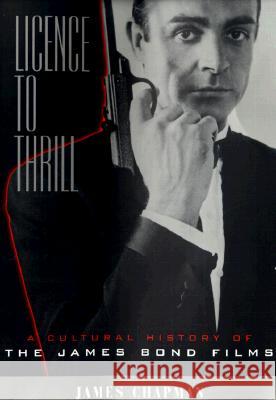Licence to Thrill: A Cultural History of the James Bond Films » książka
topmenu
Licence to Thrill: A Cultural History of the James Bond Films
ISBN-13: 9780231120494 / Angielski / Miękka / 2001 / 336 str.
The James Bond epic is the most popular film series in silver screen history: it is estimated that a quarter of the world's population has seen a Bond feature. The saga of Britain's best-loved martini hound (who we all know prefers his favorite drink "shaken, not stirred") has adapted to changing times for four decades without ever abandoning its tried-and-true formula of diabolical international conspiracy, sexual intrigue, and incredible gadgetry.
James Chapman expertly traces the annals of celluloid Bond from its inauguration with 1962's Dr. No through its progression beyond Ian Fleming's spy novels to the action-adventure spectaculars of GoldenEye and Tomorrow Never Dies. He argues that the enormous popularity of the series represents more than just the sum total of the films' box-office receipts and involves questions of film culture in a wider sense. Licence to Thrill chronicles how Bond, a representative of a British Empire that no longer existed in his generation, became a symbol of his nation's might in a Cold War world where Britain was no longer a primary actor. Chapman describes the protean nature of Bond villains in a volatile global political scene--from Soviet scoundrels and Chinese rogues in the 1960s to a brief flirtation with Latin American drug kingpins in the 1980s and back to the Chinese in the 1990s. The book explores how the movies struggle with changing societal ethics--notably, in the evolution in the portrayal of women, showing how Bond's encounters with the opposite sex have evolved into trysts with leading ladies as sexually liberated as Bond himself. The Bond formula has proved remarkably durable and consistently successful for roughly a third of cinema's history--half the period since the introduction of talking pictures in the late 1920s. Moreover, Licence to Thrill argues that, for the foreseeable future, the James Bond films are likely to go on being what they have always been, a unique and very special kind of popular cinema.










